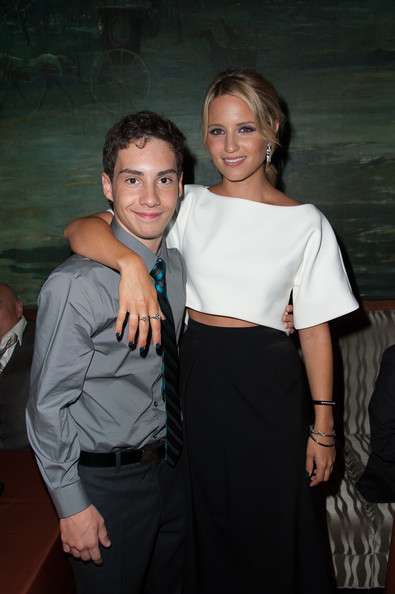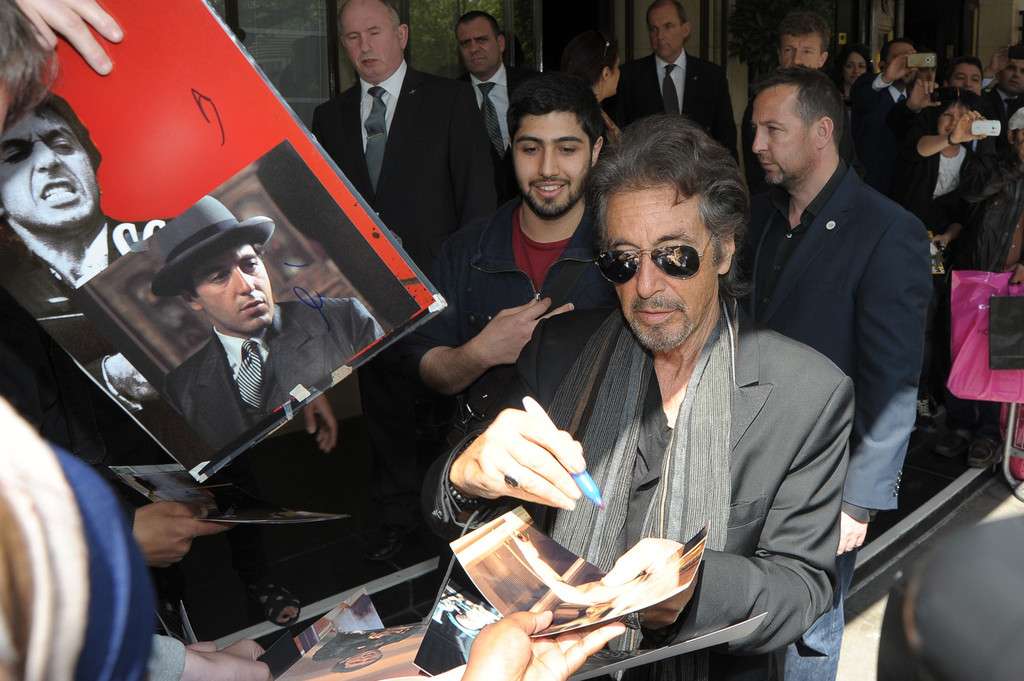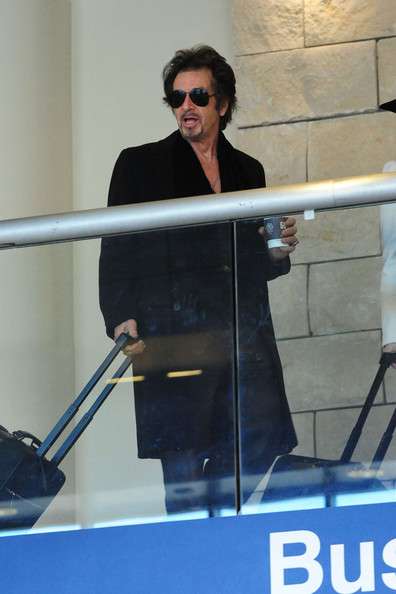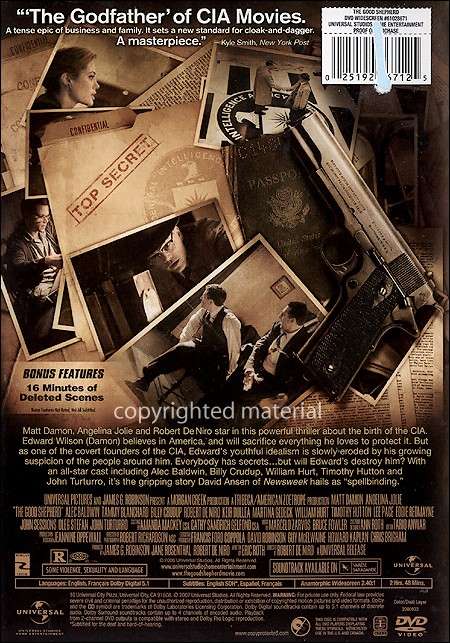Posts Tagged ‘The Godfather’
Il 13 Settembre 1979 nacque il Genius

Storia di un maledetto che si “denirizzò” nel neo anomalo, spuntato sulla guancia per empatie a pelle di Andolini Vito…
Meglio che suonare il mandolino!
Sì, sto assumendo un look sempre più somigliante al Bob. Ieri pomeriggio mi “rivolsi” allo specchio e notai che la lentiggine sulla guancia s’è ingigantita a forma nera, dunque deniriana, di verruca. Una mutazione “metacinematografica” da far impallidire Kakfa e Cronenberg. Ma tutto ha una “regione”. Sì, Bob veniva chiamato Milk da giovane, io sono solo Bobby con la lacrima sul viso… comunque, meglio il colorito ceruleo, pulito al “cloro” e non annerirsi nelle rughe, poi liftate con incuria, delle corali voci di massa.
La mia pubertà fu umorale a pois. Precoce di masturbazioni in solitaria, le “avvenenti” mie compagne delle medie, mediocri in termini fisici nonostante ambizioni da scienziate di Fisica (sarà stata colpa di quello “laureato” all’ISEF, un povero paraplegico che s’eccitava dinanzi a tante fiorenti “gioventù”, impartendo flessioni “ginniche” al suo senza rotelle eppur in carrozzina), un po’ me la mostravano nell’accavallar di gonnelline sotto i banchetti birichini quanto poi, “tirandomi” un affettuoso bacino, concupivano schifezze per eccellenza, leggasi bifolchi maniaci che, di “manesco”, già agitavan le “acque” appena mestruanti. Sì, tutto un mescolio di ormoni appena venuti a galla, fra galli che poi avrebbero dimenticato ogni putrefatta “prima volta” con tali gallinazze nello svoltar, previo “sviolinate” da lacchè, a impiegati col “bianco” colletto.
Sì, prima non sapevano coniugare, poi impararono a memoria la pappardella nell’adolescenza più da papaveri con le “paperine” sboccate-imboccantissime, “solari” quanto depresse ma bastava un “poco di zucchero” e andava giù… glup glup. Galoppate d’arrivisti sulle “bimbe” che emulavano, già mule, le modelle sulla copert(in)a della (ri)vista…
Fu allora che mandai tutti a farselo dar nel culo. Questi paraculi non meritavano un Travis Bickle “straniero” al porcile già avviato… M’innamorai di De Niro e scomparvi nella Notte più “allegra”. Quegli animali scopavano, cazzi che non mi riguardavano. Nessuno/ anche ora mi caga? Per fortuna? Già la mia merda basta. A bestia! Ci mancan solo le racchie, dei cessi e la coprofagia. Per quanto mi concernette, a tal “cenetta”, ho sempre prediletto farvi i “grilletti”. Polemico, asociale, contro ogni convenzione e talvolta, guidando nello “sbandare”, anche punito di contravvenzioni. Meglio di chi si punge nelle vite artificiali! Ah, per rimediar la figa, vendereste le siringhe anche a un barbone senza stringhe. Sarò stringato se non mi capite. Se sei un drogato, ti slogo. Il braccio è mio.
Non ci vedo della perversione. Ognuno ha la sua. Se la tenesse quella zoccola… sta sol che nella gatta ci cova. Altro che cicogne. Queste partoriscono già a dieci anni, previo aborto pagato dalla madre che si fa il lor teen.
Sì, un figlio di papà per minorenni e milf.
Mi terrò sempre bene, conservato di fascino al pepe di pene, al buon come il pandoro, e faccine con la “sordina” da Corleone, Brando a “venire” come miglior attore della sua generazione. Anche se Pacino lo surclassa. Va detto. Tutta la saga, non seghe mentali perché Coppola conosce i mafiosi “ipocriti” ch’eppur pregan sotto la “cappella” nel togliersi il cappello col “baciamo le mani”, è costruita su Michael.
“Puro” da proteggere così tanto che diverrà, appunto, il più cattivo.
Bacerà di Giuda suo fratello Cazale e poi lo ammazzerà! Porco…!
In Quel pomeriggio di un giorno da cani, al nostro Cazale andrà peggio.
Credeva di aver trovato un amico come un “tesoro”, leggasi “rapina” per far il bott(in)o e spartirselo ma invece, oltre che senza colpo gobbo, sarà ucciso di pallottola.
Comunque, anche Pacino ebbe molte gatte da pelare. Cazale aveva la pelata, Michael incontrò, nella vita reale, una Keaton Diane che gli succhiò le palle.
Infatti, negli anni 80, causa lo “spompamento”, Al girò soltanto Cruising, Scarface, Papà sei una frana e Seduzione pericolosa. I nomi glielo dicon “lungo”.
Cominciò a riprendersi la virilità con Profumo di donna… Vinse l’Oscar e Diane, dalla platea, applaudì commossa mentre Al la guardò come a gridarle: “Ecco, mi usasti a statuina per ingessarlo. Tieniti Woody Allen e i suoi o-nanismi, puttana!”. Ma ancora ebbe un crollo psico-sessuale-affettivo, ravvisabile in Paura d’amare.
E dire che Michelle Pfeiffer conobbe un Tony Montana che la montava… Heat significa calore ma Diane Venora chiese il divorzio ad Hanna. Che casino! Pure Natalie Portman che si taglia le vene prima de Il cigno nero!
Ora, che c’entra De Niro? De Niro c’entra eccome. Venerdì uscirà Malavita in America.
Finalmente, una bona Michelle, seppur un po’ invecchiata e scialba. Per la serie: dopo due volte senza neanche una (s)cena assieme, leggi Stardust e Capodanno a New York, Bob fotte Michelle.
Ce la vogliamo dire?
Come vi prendo per il popò io, neanche il padrino.
Al Pacino e i suoi “No” ad “Apocalypse Now”, “Die Hard”, “Star Wars”
He may be 73 now, and all his best-loved film performances are from the last century, but there’s no denying Al Pacino’s drawing power. He packed out the London Palladium last night for An Evening With Pacino – a curious one-off event in which he was interviewed by Emma Freud as clips from his best-known movies were shown, and genially answered questions from an adoring audience.
Most people left the theatre buzzing, seemingly happy they’d got their money’s worth. Not a negligible achievement, given that tickets ranged from £60 to £250. But for this event, which felt like a fan convention at times, Pacino was halfway home merely by having shown up.
In baggy all-black clothes, he ambled onstage and ran both hands through his hair all night as he talked. Emma Freud lobbed easy questions for Pacino to hit out of the park, and set the tone with her first comment: “Would it be all right if I said I wanted to lick your face?” Friendly grilling, then, rather than Freudian analysis.

Still, Pacino had interesting anecdotes. He’d enjoyed making Scarface (clearly the favourite film of many in the crowd), but found the Godfather trilogy “a long, awful, tiring story.” The studio was apparently poised to dump him from the first one, his first major film, in which he played Michael Corleone, because he seemed to be contributing little. Then director Francis Ford Coppola shuffled the shooting schedule, moving forward a scene in which Michael shoots rival mobsters in a restaurant. The studio suits saw the rushes and concluded Pacino was OK.
There were some decent revelations when he disclosed film roles he had turned down: Richard Gere’s in Pretty Woman (now that would have made it a different movie); Lenny (the role of Lenny Bruce went to Dustin Hoffman); Harrison Ford’s in Star Wars (“it was mine for the taking but I didn’t understand the script,” he quipped); and both Marlon Brando’s and Martin Sheen’s parts in Apocalypse Now.
The clips were exemplary: The Godfather and Scarface, of course, but also the great Dog Day Afternoon and his deliciously over-the-top crescendo of a monologue in Any Given Sunday, with Pacino as a football coach. We also saw a snatch of Scent of a Woman – far from his best movie, but the one that finally won him an Oscar for playing a blind, retired military officer. Asked by an audience member to say his character’s recurring phrase, Pacino obliged: “Whoo-yah.” The crowd went wild.
Still, they stayed politely attentive even when Pacino turned precious, discussing the theory of his craft and talking about an actor’s “instrument.” This was a crowd-pleasing evening, yet there was a cerebral edge to it: Pacino aired his grievances about why Americans find Shakespeare hard to get their heads around; he introduced a clip from his latest film, the art-house Wilde Salome, in which he stars with Jessica Chastain; and he concluded the night by reading an ee cummings poem and reciting part of Oscar Wilde’s The Ballad of Reading Gaol.
A few celebrities were sprinkled throughout the crowd: Paul O’Grady; singer Beverly Knight and Linda Henry from EastEnders, both looking smart – and, incongruously, ex-Spurs legend Ossie Ardiles. Also, inevitably, a gaggle of not-quite-recognisable D-listers, there primarily to flaunt themselves before photographers. For someone of Pacino’s stature, the list of invited guests should have been more impressive.
Still, an agreeable if eccentric evening. The thought occurred afterwards that Pacino’s performance was a subtle sleight of hand – giving the impression of sharing long-withheld secrets without revealing anything inadvertently. You can call him Al, but you don’t really know him at all.
Al Pacino best movies (?)
Secondo il consueto Total Recall di “Rotten Tomatoes”, questi i film, con corrispettivo punteggio “critico”, dei migliori film di Al Pacino.
In ordine decrescente, riportiamone letteralmente l’analisi.
10) Donnie Brasco. By 1997, gritty Al Pacino dramas about the never-ending struggle between law enforcement and organized crime were essentially a genre unto themselves, but Mike Newell’s Donnie Brasco gave it just enough of a fresh twist to justify its own existence. Based on the true story of FBI agent Joe Pistone (played here by Johnny Depp), Brasco sensitively portrays his long, painful struggle to bring down the Mafia — even at the expense of his friendship with Lefty Ruggiero, the low-level hitman played by Pacino, whose unwitting association with an undercover agent will all but certainly end his life. Admitting that it’s “perhaps familiar in its outer trappings,” Variety’s Todd McCarthy countered that “Pacino’s fine work is the key to the film succeeding to the extent that it does.”
9) Scent of a Woman. Get yer hoo-ahs out — the Academy certainly did, awarding Pacino his first Best Actor Oscar after four previous nominations. Given that those nominations included The Godfather, Part II and Dog Day Afternoon, it’s tempting to say Pacino benefited from a little late-career grade inflation, but there’s no arguing that it’s his performance that elevates this Martin Brest-directed dramedy about a prep school student (Chris O’Donnell) who takes a job looking after a blind, alcoholic retired Army Ranger. “By the end of Scent of a Woman, we have arrived at the usual conclusion of the coming-of-age movie, and the usual conclusion of the prep school movie,” admitted Roger Ebert. “But rarely have we been taken there with so much intelligence and skill.”
(otto… per mille, no, non è cattolico) Scarface. Scarface director Brian De Palma was inspired by Howard Hawks and Richard Rosson’s 1932 gangster picture of the same name, but where the earlier version was a relatively straightforward morality play, De Palma’s ’80s update offered viewers a far more lurid take on the rags-to-bullets tale of crime kingpin Tony Montana. Garishly violent and gleefully profane, Scarface endured an extended battle with the MPAA before bowing to decidedly mixed reviews, but it was a fairly sizable commercial hit — and critics have come around over the years, helping cement its status as an eminently quotable classic of over-the-top ’80s crime cinema. “The dominant mood of the film is anything but funny,” observed Vincent Canby of the New York Times, one of the few major contemporary critics to praise the film during its initial release. “It is bleak and futile: What goes up must always come down. When it comes down in Scarface, the crash is as terrifying as it is vivid and arresting.”
7) Serpico. Pacino received his first Best Actor Oscar nomination for his work in this Sidney Lumet crime drama — his second brush with the Academy during a torrid span that saw him earning some sort of Oscar nomination every year between 1972-75. While it was far from his biggest hit of the decade, it contains some of his strongest work, anchored by Lumet’s sensitive direction and a Waldo Salt/Norman Wexler screenplay inspired by the real-life story of an NYPD officer whose efforts to root out corruption in the police force were met with life-threatening resistance. Calling it “One of the best films of our time, and our grandkids’ time,” Moviehole’s Clint Morris marveled, “Serpico is pure Pacino, powerful as hell.”
6) Insomnia. Pacino has played an awful lot of cops during his career, but arguably none more complex than Insomnia‘s Will Dormer, the officer whose murky past and tortured conscience can’t erase the fact that he’s a formidably dogged investigator. Dragged out of L.A. and into a gloomy corner of Alaska, Dormer cracks a murder case in spite of his partner’s death and an attendant absence of sleep — and that?s when things really start to get grim for him. Directed by Christopher Nolan and stocked with a cast of talented actors that included Hilary Swank, Maura Tierney, Martin Donovan, and — as the world’s skeeviest crime writer — Robin Williams, it racked up a healthy $113 million at the box office and wowed critics like Salon’s Andrew O’Hehir, who grinned, “Here’s proof that it’s still possible to make pop-oriented yet personal movies with an A-list cast and a zillion bucks.”
5) Americani. Pacino’s career has seen its share of high points, but 1992 was a pretty good year to be Al — not only did he score a Best Actor Oscar for the hit Scent of a Woman, but he also picked up a Supporting Best Actor nomination for his work in another film — and one that, unlike Scent, has grown into a cult classic over the decades. Carried nimbly by an impeccable cast and directed with cool precision, James Foley’s adaptation of the David Mamet play Glengarry Glen Ross may have failed to find a wide audience during its theatrical run, but its uniformly impeccable performances, endlessly quotable script, and sadly resonant themes have made it an enduring favorite for a steadily widening circle of film buffs. Applauded Entertainment Weekly’s Owen Gleiberman, “The performers achieve a true ensemble rhythm; at times, the entire office seems like a single, shouting organism.”
4) Insider. For a certain breed of film fan, a truly great thriller is one that can get the viewer’s pulse pounding with sharp dialogue and an artfully assembled plot rather than a lot of action — and that’s pretty much The Insider in a nutshell, which might explain why it nabbed seven Academy Award nominations in spite of being a commercial flop that took a behind-the-scenes look at a landmark 60 Minutes segment in which a tobacco exec blew the whistle on deceptive practices prevalent in the industry. It might sound like awfully dry material for a film, but Michael Mann’s propulsive direction made The Insider‘s extended running time fly past — although it certainly helped that he had a pair of fine leads in Al Pacino and Russell Crowe. “What I didn’t expect,” admitted the New York Observer’s Andrew Sarris, “was an intelligently absorbing entertainment that ran for two hours and 40 minutes, during which I didn’t once look at my watch — just about the highest praise I can bestow upon a film these days.”
3) Dog Day Afternoon. Truth is often stranger than fiction, and that’s definitely the case with Dog Day Afternoon, Sidney Lumet’s darkly comic take on a real-life bank heist that went utterly awry and ended up captivating New York City during one sweaty August afternoon in 1972. Working as a dramatic thriller, a love story, and a poignant statement on the American sociopolitical landscape of the early ’70s, Afternoon was nominated for six Academy Awards (including one for Pacino, picking up his third Best Actor nomination) after racking up $50 million during its theatrical run. Still a consistent critical and audience favorite, it’s currently enshrined in the National Film Registry — and still picking up positive reviews from critics like Movieline’s Stephen Farber, who applauded, “Dog Day Afternoon brims over with energy, rude humor and understated pathos.”
2) The Godfather, 2nd Part. Some movies are such big hits that they basically guarantee a sequel, while others are so beloved that even thinking about trying to follow them up requires a monumental amount of filmmaking chutzpah. Francis Ford Coppola’s The Godfather falls squarely into the latter category, which is part of why 1974’s The Godfather Part II is such an incredible achievement: Not only did it follow in its predecessor’s blockbuster footsteps at the box office, but it also (nearly) replicated its critical batting average — and while it lacked Marlon Brando’s magisterial presence, it more than made up for his absence with a generation-spanning storyline that juxtaposed the impossible choices facing Michael Corleone (Pacino) with the ruthless rise of his father (Robert De Niro). “This film has an even broader scope than the original,” mused Jeffrey M. Anderson for Combustible Celluloid, “but does not fail in its depiction of small, intimate moments and surprising emotional reveals.”
1) The Godfather. We cover a lot of critical winners in these Total Recall columns, but very few of them boast a perfect 100 percent on the Tomatometer — let alone the level of blockbuster commercial success enjoyed by The Godfather, which briefly held the distinction of being the top-grossing film of all time. It’s all richly deserved; one of the most influential entries in the modern cinematic canon, it unfolds a sprawling, multi-generational saga with power and grace, using a solid screenplay (adapted by director Francis Ford Coppola from the Mario Puzo novel) and an impeccably assembled cast (including the Oscar-nominated Pacino, James Caan and Robert Duvall, and led by Best Actor winner Marlon Brando) to deliver what TIME’s Jay Cocks praised as “that rarity, a mass entertainment that is also great movie art.”
Personalmente, credo che questa lista sia parecchio sballata. Innanzitutto, a livello qualitativo di messa in scena, Il padrino 2 è meglio del capostipite (di famiglia…).
Non compare Carlito’s Way, da primissimi posti, perché De Palma meno nascosto di voyeur. Vero, romantico, sincero, epico. Con tutto il rispetto per Nolan Christopher, non faccio ancora scambio con Brian. Preferisco le sue notti alle insonnie. E poi? Sì, Insider, ottimo, lodevole e di Mann. Ma, di Mann, manca Heat, il suo capolavoro assoluto. Che razza d’imbroglio è mai questo? Qui tacciono la verità.
Poi Cruising e quel che ci va “dietro” di moralismo americano che lo censura.
Eccolo, a 72 anni, in formissima. Al Pacino e il suo proverbiale cappuccino:

“The Good Shepherd” – Recensione
Un plumbeo capodopera “inarcato” nelle “formazioni” della formalità rattrappita alle forme scultoree delle rapite giovinezze
Mastodontici echi “acquosi” di malinconia troppo savia per non destare l’indagine, “sciolta” in 25 anni di Storia americana, dalla seconda guerra mondiale all’“esodo” fallimentare dell’anticastrismo, “castratissimo”, della Baia dei porci.
Narrato come un racconto di formazione di tragedia dell’anima in agguato, “salingeriano” nell’analessi che, “dislessica”, frastaglierà nei “lineari” doppiopetti della CIA, strumento di controllo del Mondo e delle menti non solo “assoldate”.
“Intelligence” offuscata nei riti “carbonari”, società segreta “medioevale”, tenebrosa di Skull and Bones, e tanti scheletri “aleggeranno” nel viaggio “dorato”, d’orgia di tradimenti, complotti, registrazioni, intercettazioni, corna, carni e cadaveri scoperti “disossati” o da “affogare”, metafisiche lealtà tradite, stoico eroe dell’impossibile quietezza del vivere quando “non vivi”, dunque vedi di più.
“Sepolto” nello spettro d’un Matt Damon laconico, “freddissimo”, impassibile e “inespressivo”, lacerato da dubbi, da “inetta” attitudine all’“adattamento” della selezione “naturale” dei “forti” a protezione della Nazione, delle bandiere, ombra e martirio, “mattino” d’albe “marine”, ardore suo placato da una compostezza d’incognite ad “aggrovigliare” il sorriso, a “sbiancarlo” troppo di “macchia” come tutti i “servi” prodigati alla prostituzione d’ideali troppo teorici, segnati dalla “levigatezza” ingannevole, “finti” di gioco (ir)reale e crudelmente (auto)indagatorio a raggi x per non osservare il lento esacerbarsi, inasprirsi o imbalsamarsi… proprio di sé (com)punti… ni sulle i…
Produce la Zoetrope di Coppola, non è un caso.
Dirige De Niro ereditando Frankenheimer e le sue spie. Non è una coincidenza, uno scambio di favori “postumo”.
C’è la Jolie in “tenuta” triste, ed è una scelta che gela.
Eric Roth ribalta Forrest Gump in una sceneggiatura che, qui, non è ammansita nel buonismo conciliante.
Gli scemi pagano, i “grandi” ancora di più perché sanno troppe “cose”…
Richardson “scheggia” fotografica, “impermeabilizzata” in un’altra tragedia (non) annunciata, vibrante, “impiccata” nello strazio d’un Damon dal vagito d’“inchiostri neri” del Cuore, anche nella sua felicità “toccata in volo”.
(Stefano Falotico)

